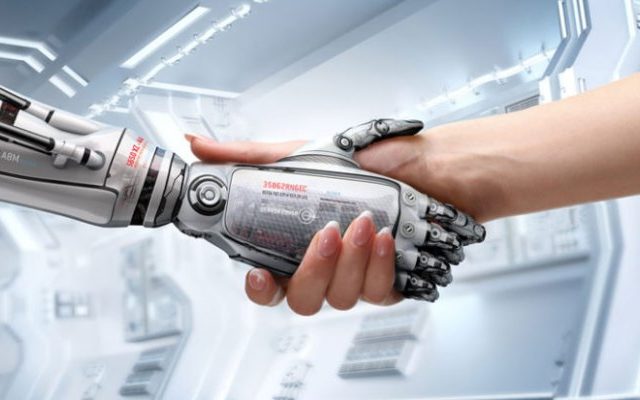During one of our recent breakfast briefings, we discussed the potential for chatbots and artificial intelligence in areas such as insurance and trading. It’s a complex and fascinating area and I’ve spent a lot of time talking to our head of Big Data, David Burke, about it.
One of the biggest challenges we’ve discussed is that machines are good with rules. This is perhaps best illustrated by Google’s AI victory against the reigning ‘Go’ champion, Lee Sedol. However, applying this to real life – let alone the financial sector – is somewhat harder.
After all, the inherent contradiction in financial markets is that they both do and don’t follow rules. Machines are generally able to spot trends and spread risk, selecting stable indices for investment and giving a reasonably solid performance. They can understand extremely large volumes of data and help to analyse it, showing useful patterns of risk and reward.
However, a large part of investing in particular is understanding and bringing together wider market conditions, knowledge and intuition. To some extent, the financial performance of companies depends on understanding rational and irrational human behaviour, because these companies are made up of people. Of course, as I said, this behaviour is only part of the puzzle, so I do see robots and AI having a significant role in both retail banking and capital markets – and it’s a complementary role.
After all, we’ve all seen the high-profile stories of traders who trusted their intuition and lost millions. And of course, AI can be wrong as well, of course. A badly written programme is often extremely dangerous – the Huffington Post reminded me of a case where stock markets crashed and then recovered in a mere 36 minutes because of software trading glitches.
Similarly, companies may spend a long time creating complex algorithms only to find that humans do it better. A paper by Stian Mikelsen (NB. Links to pdf) on exactly this topic concluded that “No trading system was able to outperform the benchmark when using transaction costs”. For the complex systems of trading, I still see a very strong role for humans, but it’s one where human intuition and experience is supported and supplemented by machine intelligence.
However, for retail banking, I see a much more straightforward future. Consumers do tend to be creatures of habit, making spending analysis and prediction far easier to map than the ups and downs of the stock market. One of the main uses we foresee for machine intelligence in retail banking is predicting the impact of purchases or changed habits on spending goals – for example, the impact of an extra Nando’s meal each week on your holiday plans or savings for a deposit on a house.
Of course, it’s not quite this simple, but the relatively straightforward parameters of managing consumer spending do lend themselves better to machine learning than the complexities of the stock market – but I would be happy to be proved wrong!
Article by channel:
Everything you need to know about Digital Transformation
The best articles, news and events direct to your inbox







